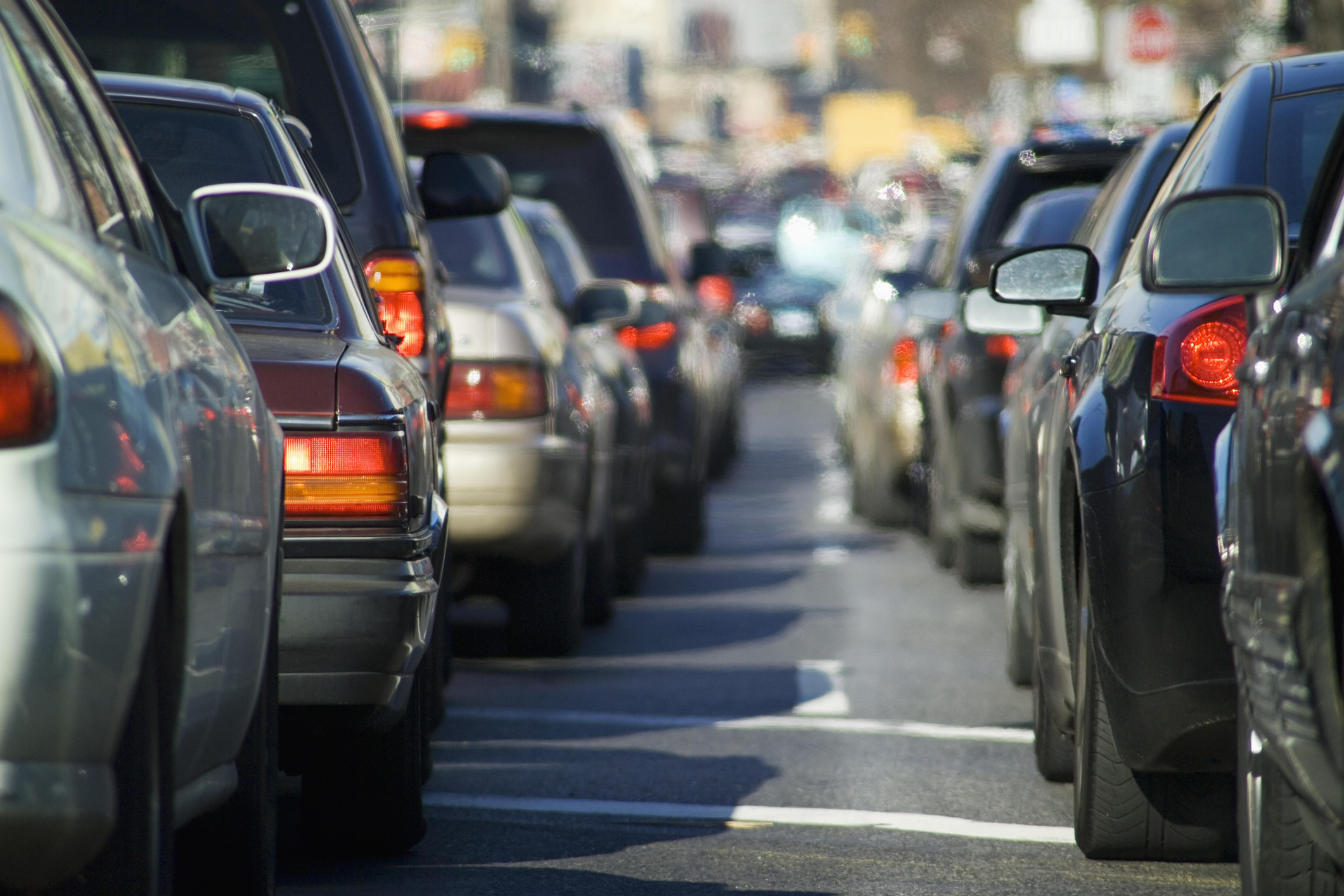How To Know If Your Car Is Recalled — And What To Do About It
Millions of vehicles are recalled every year, but their drivers may not always know it.


Profit and prosper with the best of Kiplinger's advice on investing, taxes, retirement, personal finance and much more. Delivered daily. Enter your email in the box and click Sign Me Up.
You are now subscribed
Your newsletter sign-up was successful
Want to add more newsletters?

Delivered daily
Kiplinger Today
Profit and prosper with the best of Kiplinger's advice on investing, taxes, retirement, personal finance and much more delivered daily. Smart money moves start here.

Sent five days a week
Kiplinger A Step Ahead
Get practical help to make better financial decisions in your everyday life, from spending to savings on top deals.

Delivered daily
Kiplinger Closing Bell
Get today's biggest financial and investing headlines delivered to your inbox every day the U.S. stock market is open.

Sent twice a week
Kiplinger Adviser Intel
Financial pros across the country share best practices and fresh tactics to preserve and grow your wealth.

Delivered weekly
Kiplinger Tax Tips
Trim your federal and state tax bills with practical tax-planning and tax-cutting strategies.

Sent twice a week
Kiplinger Retirement Tips
Your twice-a-week guide to planning and enjoying a financially secure and richly rewarding retirement

Sent bimonthly.
Kiplinger Adviser Angle
Insights for advisers, wealth managers and other financial professionals.

Sent twice a week
Kiplinger Investing Weekly
Your twice-a-week roundup of promising stocks, funds, companies and industries you should consider, ones you should avoid, and why.

Sent weekly for six weeks
Kiplinger Invest for Retirement
Your step-by-step six-part series on how to invest for retirement, from devising a successful strategy to exactly which investments to choose.
Car recalls happen more often than you might expect. Some 27 million cars were recalled in 2024, according to BizzyCar, and 2025 is already kicking off with recalls to know about.
Whether it's a faulty airbag, a software bug or a mechanic flaw, recalls don’t happen until thousands of cars are already on the road, and one of them might be yours. If your car is part of a recall, the fix is usually easily manageable, but you have to know it's happening first.
Manufacturers are required to mail out notices to drivers whose cars have been affected, but that can happen weeks after the recall takes place. For example, the National Highway Traffic Safety Administration (NHTSA) issued a recall on Ford vehicles on December 20, 2024, but letters don't start going out to owners until January 13, 2025.
From just $107.88 $24.99 for Kiplinger Personal Finance
Become a smarter, better informed investor. Subscribe from just $107.88 $24.99, plus get up to 4 Special Issues

Sign up for Kiplinger’s Free Newsletters
Profit and prosper with the best of expert advice on investing, taxes, retirement, personal finance and more - straight to your e-mail.
Profit and prosper with the best of expert advice - straight to your e-mail.
That’s why it’s a good idea to periodically check to make sure your car is not part of a current recall.
Why do car recalls happen?
Car recalls have been on the rise recently. Data from the NHTSA show recalls going up particularly within the last decade. Part of the reason for all the recalls may be because car manufacturers have to use complex electronic parts in vehicles, which makes cars more likely to malfunction, ABC News reported.
Some recalls are for safety issues, like a recall of Kias for rollaway risk or of BMWs for fire risk. Others reasons for recalls sound slightly less alarming. Among the largest recalls last year was of Teslas, which were recalled over the font size on their instrument panels.
Who recalls cars?
Car recalls often come from two places. The automakers themselves will sometimes voluntarily issue recalls on their vehicles if they notice a defect.
Otherwise, the NHTSA, a government organization, will announce vehicle recalls if they believe a car doesn’t meet minimum safety standards.
How to know if your car is recalled
NHTSA has its own vehicle recall website that lists any announcements regarding car defects. To use it, you simply need to plug in your vehicle identification number (VIN). If you’re not sure where that number is on your car, you can plug in your license plate number or your vehicle’s make and model.
NHTSA also runs the SaferCar app, a mobile platform that automatically alerts you to any car recalls. Once you download the app on your phone, you can add different cars to your “garage,” and the app will keep tabs on recall efforts for those models.
Kelley Blue Book also has a recall portal that will require either a VIN, license plate number, or make and model.

Check these websites regularly. Sometimes, if a vehicle recall is recent, not all VINs will show up under the recall announcement. VINs are added regularly to the report, so you may still be entitled to get your vehicle fixed.
Car manufacturers will often have their own recall portals as well. If you know your car’s manufacturer, you can do a search for their recall websites and enter your VIN.
Car manufacturers will also send out notices in the mail to affected drivers. That letter will detail what defect is spurring the recall, a short-term solution for drivers (like “do not drive” or “engage the emergency brake”), and a detailed timeline of how the manufacturer will fix the problem.
What to do if your car gets recalled
If you find out your car is getting recalled through a notice in the mail, it will likely have instructions on how to proceed.
Usually, the automaker will instruct drivers to contact a nearby dealership that will make the necessary repairs to the car. Dealerships are required by law to make repairs in a timely manner, but the availability of parts, especially as manufacturing is bottlenecked, may slow down the process.
When a recall is issued, the automaker is required to fix the driver’s vehicle for free or reimburse the driver for any repairs they had to take on themselves. Even if you are the second or third owner of your car, you can get the defective part or mechanism fixed for free.
Related Content
Profit and prosper with the best of Kiplinger's advice on investing, taxes, retirement, personal finance and much more. Delivered daily. Enter your email in the box and click Sign Me Up.

Keerthi Vedantam is a reporter covering finance, tech and science. She previously covered biotech and health at Crunchbase News and enterprise technology at Business Insider.
-
 Dow Adds 1,206 Points to Top 50,000: Stock Market Today
Dow Adds 1,206 Points to Top 50,000: Stock Market TodayThe S&P 500 and Nasdaq also had strong finishes to a volatile week, with beaten-down tech stocks outperforming.
-
 Ask the Tax Editor: Federal Income Tax Deductions
Ask the Tax Editor: Federal Income Tax DeductionsAsk the Editor In this week's Ask the Editor Q&A, Joy Taylor answers questions on federal income tax deductions
-
 States With No-Fault Car Insurance Laws (and How No-Fault Car Insurance Works)
States With No-Fault Car Insurance Laws (and How No-Fault Car Insurance Works)A breakdown of the confusing rules around no-fault car insurance in every state where it exists.
-
 No-Fault Car Insurance States and What Drivers Need to Know
No-Fault Car Insurance States and What Drivers Need to KnowA breakdown of the confusing rules around no-fault car insurance in every state where it exists.
-
 7 Frugal Habits to Keep Even When You're Rich
7 Frugal Habits to Keep Even When You're RichSome frugal habits are worth it, no matter what tax bracket you're in.
-
 How Much It Costs to Host a Super Bowl Party in 2026
How Much It Costs to Host a Super Bowl Party in 2026Hosting a Super Bowl party in 2026 could cost you. Here's a breakdown of food, drink and entertainment costs — plus ways to save.
-
 3 Reasons to Use a 5-Year CD As You Approach Retirement
3 Reasons to Use a 5-Year CD As You Approach RetirementA five-year CD can help you reach other milestones as you approach retirement.
-
 How to Get the Fair Value for Your Shares When You Are in the Minority Vote on a Sale of Substantially All Corporate Assets
How to Get the Fair Value for Your Shares When You Are in the Minority Vote on a Sale of Substantially All Corporate AssetsWhen a sale of substantially all corporate assets is approved by majority vote, shareholders on the losing side of the vote should understand their rights.
-
 How to Watch the 2026 Winter Olympics Without Overpaying
How to Watch the 2026 Winter Olympics Without OverpayingHere’s how to stream the 2026 Winter Olympics live, including low-cost viewing options, Peacock access and ways to catch your favorite athletes and events from anywhere.
-
 Here’s How to Stream the Super Bowl for Less
Here’s How to Stream the Super Bowl for LessWe'll show you the least expensive ways to stream football's biggest event.
-
 The Cost of Leaving Your Money in a Low-Rate Account
The Cost of Leaving Your Money in a Low-Rate AccountWhy parking your cash in low-yield accounts could be costing you, and smarter alternatives that preserve liquidity while boosting returns.